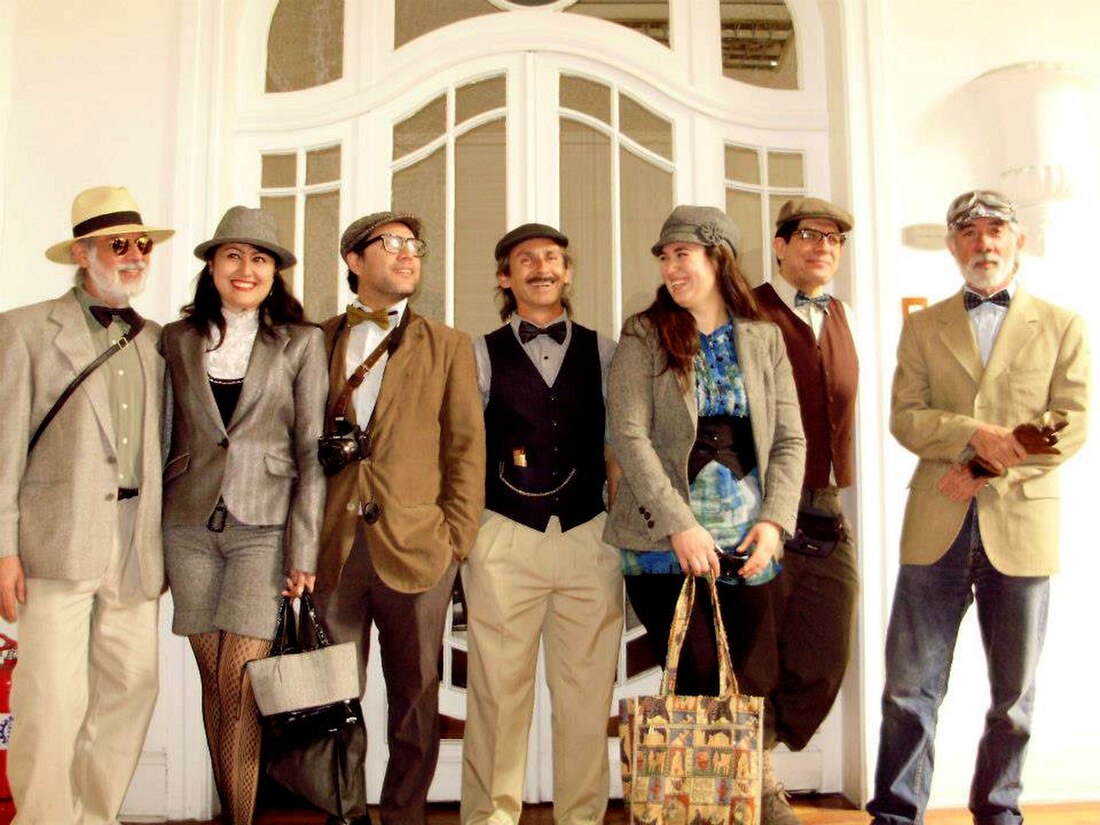復古風格是人們為模仿或有意識地重現歷史上的生活方式、潮流或藝術形式而形成的一種風格,復古風格在音樂和時尚中非常常見。不過一般而言復古風格所模仿的對象大多是近代工業革命以來所產生的產品、時尚和藝術風格[1]。
復古衣着、復古交通工具、復古音樂類型
外部連結
- Baudrillard, Jean. Simulacra and Simulation. Ann Arbor: University of Michigan Press. 1995. ISBN 978-0-472-06521-9.
- Collins, James C. Uncommon Cultures: Popular Culture and Post-Modernism. New York/London: Routledge. 1989. ISBN 978-0-415-90137-6.
- Eco, Umberto. Travels in Hyperreality. New York: Harcourt. 1986. ISBN 978-0-15-191079-3.
- Eco, Umberto. The Structure of Bad Taste. Amsterdam: Bert Bakker. 1988.
- Guffey, Elizabeth E. Retro: The Culture of Revival. London: Reaktion. 2006. ISBN 978-1-86189-290-4.
- Robyns, Clem (1991). "Beyond the first dimension: recent tendencies in popular culture studies", in Joris Vlasselaers (Ed.) The Prince and the Frog, Leuven: ALW, 14-32.
- Ross, Andrew. No Respect. Intellectuals and Popular Culture
 . New York/London: Routledge. 1989. ISBN 978-0-415-90037-9.
. New York/London: Routledge. 1989. ISBN 978-0-415-90037-9. - Samuel, Raphael. Theatres of Memory. London: Verso. 1994. ISBN 978-0-86091-209-5.
- The Retro Store (頁面存檔備份,存於互聯網檔案館), 2018: Website listing and displaying many retro related items.
- Dermody, Brenda and Breathnach, Teresa (2009). New Retro: classic graphics, today’s designs London: Thames & Hudson
- Baker, Sarah Elsie (2012). Retailing Retro. Class, cultural capital and the material practices of the (re)valuation of style in European Journal of Cultural Studies, 15: 621,
- Heller, Steven and Lasky, Julie (1993). Borrowed Design: The Use and Abuse of Historical Form, New York: Wiley
- Woodham, Jonathan M. (2004). A Dictionary of Modern Design. Oxford: Oxford University Press
參考文獻
Wikiwand in your browser!
Seamless Wikipedia browsing. On steroids.
Every time you click a link to Wikipedia, Wiktionary or Wikiquote in your browser's search results, it will show the modern Wikiwand interface.
Wikiwand extension is a five stars, simple, with minimum permission required to keep your browsing private, safe and transparent.




